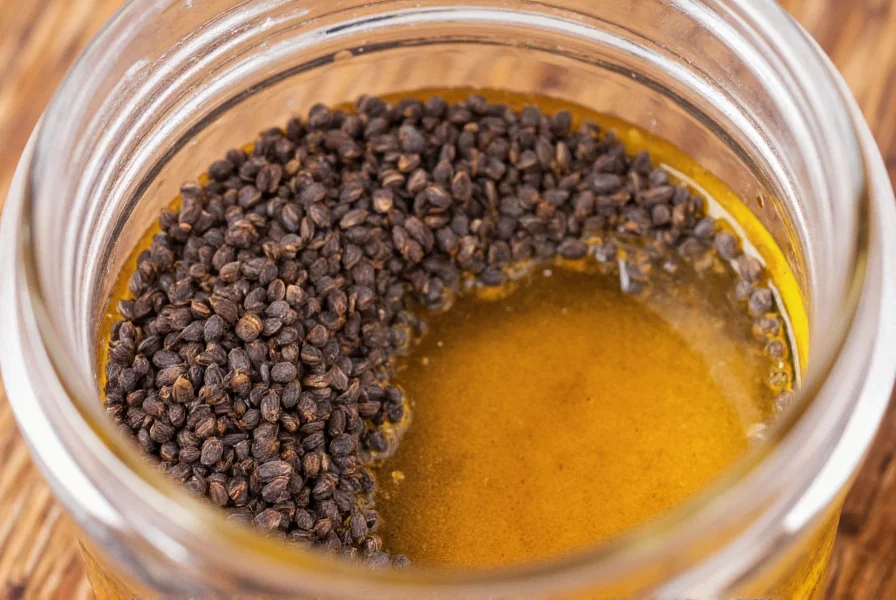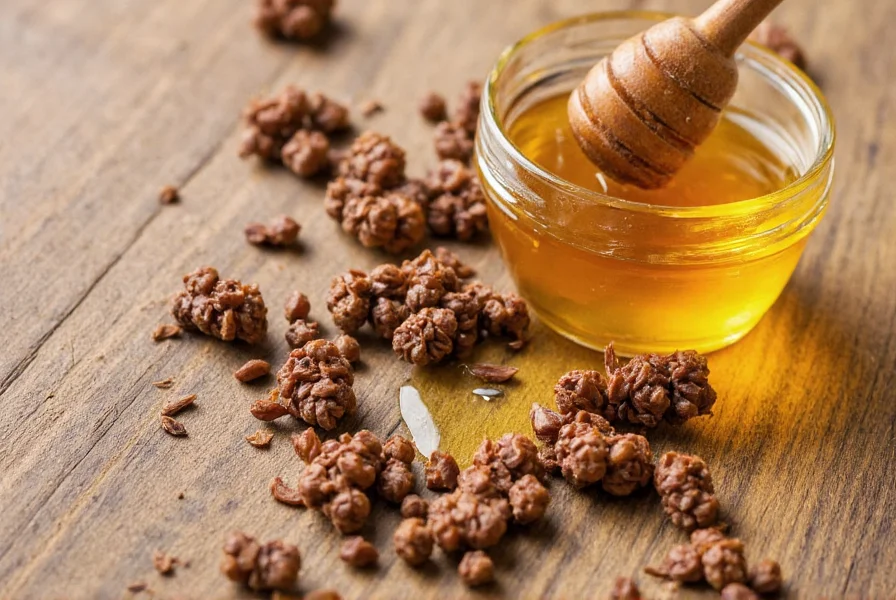For centuries, traditional medicine systems across the Middle East, South Asia, and North Africa have utilized the powerful combination of black cumin seeds and honey. This natural pairing represents one of the most well-documented traditional remedies that modern science continues to investigate for its potential health applications. Unlike many folk remedies that lack scientific backing, the black cumin and honey combination shows promising results in multiple research areas while maintaining an excellent safety profile when used appropriately.
The Science Behind Black Cumin and Honey
Black cumin (Nigella sativa), also known as black seed or kalonji, contains thymoquinone as its primary active compound. This phytochemical demonstrates significant antioxidant and anti-inflammatory properties in numerous studies. Honey, particularly raw and unprocessed varieties, contains enzymes, vitamins, minerals, and additional antioxidants that work synergistically with black cumin compounds.
A 2020 review published in the Journal of Ethnopharmacology analyzed 25 clinical trials examining black cumin's effects, noting consistent evidence for immune modulation and anti-inflammatory benefits. When combined with honey's natural antimicrobial properties, this duo creates a complementary relationship that enhances bioavailability of active compounds while potentially reducing gastrointestinal side effects sometimes associated with black cumin oil alone.
Evidence-Based Health Benefits
Research on black cumin and honey reveals several promising applications supported by varying levels of scientific evidence:
| Health Application | Scientific Evidence Level | Key Research Findings |
|---|---|---|
| Immune Support | Moderate to Strong | Multiple studies show enhanced immune cell activity and reduced inflammatory markers |
| Respiratory Health | Moderate | Improved symptoms in asthma and allergic rhinitis patients in clinical trials |
| Digestive Health | Preliminary | Animal studies show protection against ulcers; limited human trials available |
| Metabolic Health | Moderate | Some studies indicate improved blood sugar control and lipid profiles |
It's crucial to understand that while traditional medicine has used this combination for generations, modern scientific validation varies significantly across different health claims. The strongest evidence supports immune-modulating and anti-inflammatory effects, while other applications require more rigorous human studies.
Traditional Uses vs. Scientific Reality
Traditional medicine systems, particularly Unani and Ayurvedic practices, have prescribed black cumin and honey for:
- Respiratory conditions like asthma and bronchitis
- Digestive complaints including bloating and indigestion
- Skin conditions when applied topically
- General wellness and longevity promotion
Modern research partially validates these traditional uses. A 2019 clinical trial in the European Journal of Integrative Medicine found that participants with mild allergic rhinitis who consumed black cumin seed oil with honey showed significant symptom improvement compared to placebo. However, many traditional claims about curing serious diseases lack sufficient clinical evidence and should be approached with appropriate skepticism.
How to Use Black Cumin and Honey Effectively
For those interested in incorporating this traditional remedy into their wellness routine, proper preparation and usage matters significantly:
- Quality selection: Choose cold-pressed black cumin seed oil or freshly ground seeds, and raw, unprocessed honey for maximum benefits
- Standard preparation: Mix 1 teaspoon of black cumin seed oil or 1/2 teaspoon of ground seeds with 1 tablespoon of honey
- Timing: Consume on an empty stomach in the morning for optimal absorption
- Duration: Traditional protocols often recommend 3 months of regular use followed by a break
For respiratory support, some traditional preparations add warm water to create a soothing drink. For topical applications on skin conditions, the mixture can be applied directly to affected areas, though patch testing is recommended first due to potential skin sensitivity.

Safety Considerations and Potential Interactions
Despite its natural origins, this combination isn't risk-free for everyone. Important safety considerations include:
- Black cumin may lower blood sugar levels, requiring monitoring for diabetics
- Potential interactions with blood pressure medications and anticoagulants
- Rare cases of allergic reactions, particularly in those sensitive to plants in the Ranunculaceae family
- Pregnant women should avoid therapeutic doses due to potential uterine stimulation effects
- Honey should never be given to children under 1 year due to botulism risk
A 2021 safety review in Complementary Therapies in Medicine concluded that black cumin is generally well-tolerated at standard doses (1-2g daily of seed or 1-2mL of oil), but emphasized the importance of medical consultation for those with chronic conditions or taking prescription medications.
Research Limitations and Future Directions
While promising, current research on black cumin and honey has several limitations:
- Many studies use black cumin alone rather than the combination with honey
- Small sample sizes in human clinical trials
- Lack of long-term safety data for regular consumption
- Standardization issues with black cumin products affecting study reproducibility
Researchers call for more rigorous, large-scale human trials specifically examining the synergistic effects of black cumin and honey. Future studies should focus on standardized preparations, optimal dosing, and specific health outcomes to provide clearer clinical guidance.
Practical Recommendations
Based on current evidence, here's how to thoughtfully incorporate black cumin and honey into your wellness routine:
- View this combination as complementary to, not a replacement for, conventional medical care
- Start with small amounts to assess tolerance before regular use
- Document any changes in symptoms to evaluate personal effectiveness
- Source high-quality ingredients from reputable suppliers
- Maintain realistic expectations about potential benefits
Remember that individual responses vary significantly. What works well for one person may have minimal effects for another due to genetic, metabolic, and lifestyle differences. The most effective approach combines this traditional remedy with other evidence-based wellness practices rather than relying on it as a standalone solution.
Frequently Asked Questions
What's the best ratio of black cumin to honey for health benefits?
The most commonly studied and traditionally used ratio is 1 part black cumin seed oil (or freshly ground seeds) to 2 parts raw honey. For daily maintenance, this typically translates to 1 teaspoon of black cumin oil mixed with 2 teaspoons of honey. When using ground seeds instead of oil, use 1/2 teaspoon of seeds with 1 tablespoon of honey. This ratio balances bioactive compound concentration with palatability while ensuring proper absorption of the oil-soluble compounds in black cumin.
How long does it take to see results from black cumin and honey?
Results vary depending on the health concern and individual factors. For immune support and general wellness, many people report noticing subtle improvements in energy levels and resilience to minor illnesses within 4-6 weeks of consistent daily use. For specific conditions like mild respiratory issues, some clinical studies showed measurable improvements in symptoms after 8-12 weeks. It's important to maintain realistic expectations—this combination works gradually as a supportive remedy rather than providing immediate dramatic effects. Consistency is key, with traditional protocols often recommending 3 months of regular use before evaluating effectiveness.
Can black cumin and honey help with allergies?
Research suggests potential benefits for certain types of allergies, particularly respiratory allergies. A 2019 clinical trial published in the European Journal of Integrative Medicine found that participants with allergic rhinitis who consumed black cumin seed oil with honey showed significant improvement in nasal symptoms compared to placebo. The anti-inflammatory and immune-modulating properties of thymoquinone (the main active compound in black cumin) appear to help regulate the body's histamine response. However, this combination is not a replacement for prescribed allergy medications, especially for severe allergies or anaphylaxis. It may work best as a complementary approach alongside conventional treatment under medical supervision.
Is there a difference between using black cumin oil versus ground seeds with honey?
Yes, there are important differences. Black cumin seed oil contains higher concentrations of thymoquinone (up to 0.5-1.5%) compared to ground seeds (approximately 0.2-0.4%), making it potentially more potent for certain applications. However, ground seeds provide additional fiber and other compounds not present in the oil. Oil is generally better absorbed when mixed with honey due to its fat-soluble nature, while ground seeds may be preferable for digestive health applications. For therapeutic purposes, oil is often recommended, while ground seeds work well for general wellness. Always choose cold-pressed, organic oil or freshly ground seeds to maximize potency, as thymoquinone degrades with heat and storage.
Can children safely consume black cumin and honey?
Children over 1 year old can generally consume this combination with appropriate dosage adjustments, but honey should never be given to infants under 12 months due to botulism risk. For children aged 1-5 years, use half the adult dose (1/4 teaspoon oil or 1/8 teaspoon ground seeds with 1/2 teaspoon honey). Children 6-12 years can use 1/2 the adult dose. Always consult a pediatrician before giving black cumin to children, especially those with allergies, asthma, or who take medications. Some children may experience mild digestive upset when first introducing black cumin, so start with very small amounts and monitor for any adverse reactions.











 浙公网安备
33010002000092号
浙公网安备
33010002000092号 浙B2-20120091-4
浙B2-20120091-4